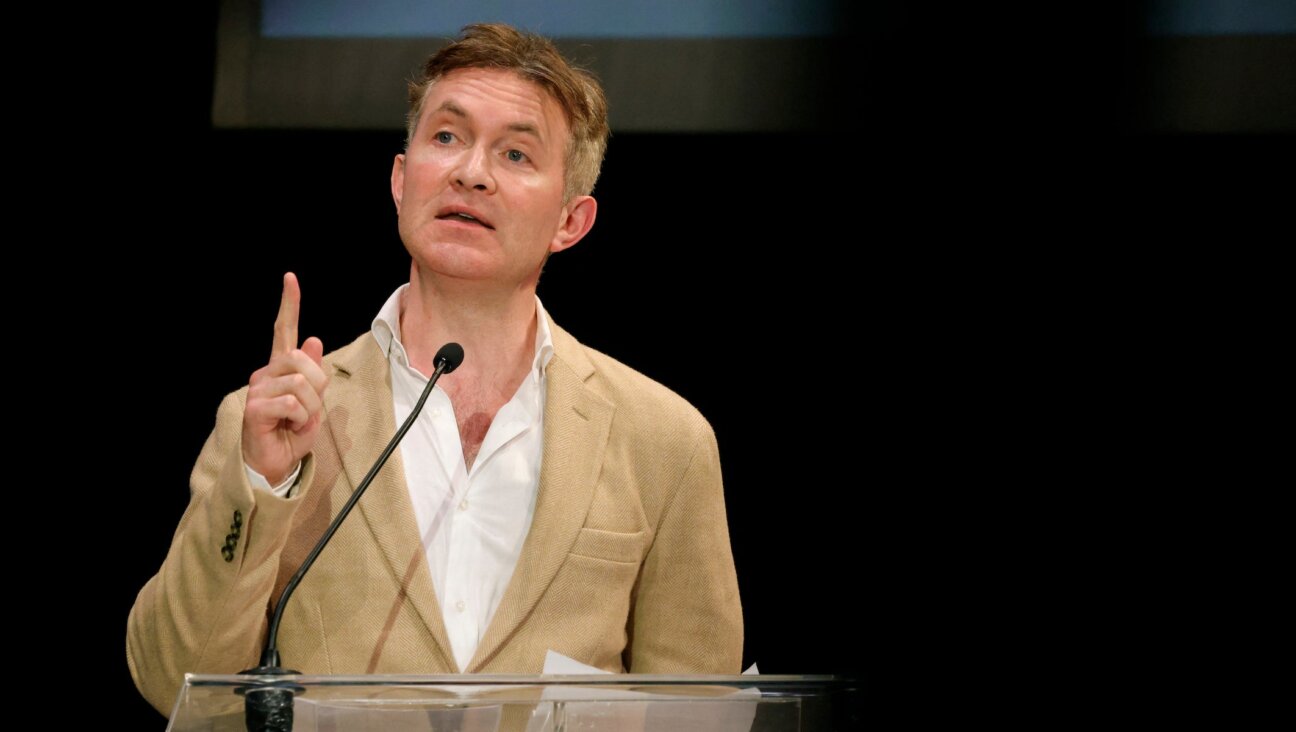UJC Training Women To Be Top Leaders
In an effort to shatter its own glass ceiling, the country’s main Jewish philanthropic organization is tapping women to fill half the slots in a training program for top executives.
The United Jewish Communities announced last week that 12 women will be selected to take part in a training program aimed at training future leaders of the 40 largest local Jewish charitable federations. The last time the program was held, in the mid-1990s, only five of the 21 participants were women.
Women’s advocates say that this year’s training initiative, a joint program of UJC and the Mandel Foundation, is the first step in narrowing the gender gap at the top of the federation hierarchy. About three-quarters of all federation employees are women, but none of the 20 largest federations has ever been headed by a female chief executive. Only three of the 40 largest federations are currently headed by women.
“If you look at the major Jewish organizations — Aipac, ADL, American Jewish Committee, American Jewish Congress, JESNA, CLAL, Hillel — they’re all headed by men,” said Shifra Bronznick, founder of the advocacy group Advancing Women Professionals and the Jewish Community. “When you combine that, it creates an atmosphere in which women are not seen as top leaders and that becomes a self-fulfilling prophesy.”
To open up the leadership ranks, Bronznick’s organization has formed a unique partnership with UJC, the national roof body of local Jewish charitable federations. The two groups collaborated on a study published last year that identified several reasons for the dearth of top female executives, including a lack of women on leadership tracks and the clubby, male-dominated culture of federations. The study found that men, particularly those born before 1945, predominate as lay leaders and major donors in federations and are more likely to fill top professional positions with other men. Top male professionals, in turn, have been more likely to mentor and promote male subordinates.
“It’s not like Tang,” the powdered drink, Bronznick quipped. “You can’t just, you know, add women and stir.”
Bronznick’s group and UJC have developed a detailed work plan for creating opportunities for women. It calls for increasing the number of women who speak at the annual UJC General Assembly, developing a system for tracking placement and salaries in the federation system and improving mentoring for both women and men.
In addition, UJC adopted the goal of having an even split of men and women in this year’s training program. Achieving that goal required rethinking how UJC went about recruiting and evaluating applicants, participants said.
“One of the byproducts of the process was the huge number of applications we received and the huge number of excellent applications we received, both from men and women,” said selection committee chairwoman Cindy Chazan. In 1992, Chazan became the first woman to head a top-40 federation when she was named executive director of the Jewish Federation of Greater Hartford.
While applicants in past years were nominated by federations’ executive directors, this year self-nominations were accepted — and double the number of applications were sent in. At the same time, a recruitment committee interviewed federation leaders to identify talented women, and then conducted outreach efforts to encourage those women to apply. The result, UJC leaders said, is a more professional process for finding talent that they hope will serve as a model for recruiting senior-level personnel at federations across North America.
Bronznick said the process would help create a more equitable system that retains talented executives who might otherwise leave for more hospitable sectors. At the same time, she cautioned that ultimately federations must create a culture that allows men and women to achieve a work-life balance.
“We need to think in a whole new way about how work, family and community fit together,” Bronznick said. She added: “We really want to help re-envision the kind of workplaces that we have and to influence the kind of priorities that are set by the community.”















